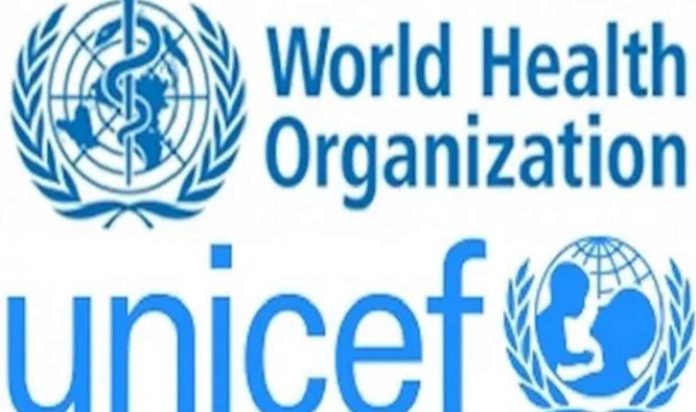The United Nations Children’s Fund (UNICEF) and the World Health Organization (WHO) have both called for more resources and commitment to tackle the global malnutrition crisis.
UNICEF Executive Director Henrietta Fore and WHO Director General Dr. Tedros Afhanom Ghebreyesus made this appeal on a joint statement made accessible to journalists in Abuja on the occasion of World Breastfeeding Week.
The United Nations Children’s Fund (UNICEF) and World Health Organization (WHO) have urged for increased funding and commitment to combat the worldwide malnutrition epidemic.
The statement read in bits; “Breastfeeding is central to realising this commitment.
“Initiation of breastfeeding within the first hour of birth, followed by exclusive breastfeeding for six months and continued breastfeeding for up to two years or beyond offer a powerful line of defence against all forms of child malnutrition, including wasting and obesity. Breastfeeding also acts as babies’ first vaccine, protecting them against many common childhood illnesses.
“While there has been progress in breastfeeding rates in the last four decades – with a 50 per cent increase in the prevalence of exclusive breastfeeding globally – the COVID-19 pandemic highlights the fragility of those gains.
“In many countries, the pandemic has caused significant disruptions in breastfeeding support services, while increasing the risk of food insecurity and malnutrition. Several countries have reported that producers of baby foods have compounded these risks by invoking unfounded fears that breastfeeding can transmit COVID-19 and marketing their products as a safer alternative to breastfeeding.”
The statement continued; “In Nigeria, where 1 in 8 children do not reach their 5th birthday and 3 in 10 children are stunted, optimal breastfeeding practices are known to reduce neonatal and child morbidities and mortality rates as well as stunting reduction. Optimal nutrition provided by breastfeeding along with nurturing, care, and stimulation strengthens a child’s brain development with positive impacts that endure over a lifetime.
“Available statistics in Nigeria reveal that the average duration of exclusive breastfeeding is approximately 3 months and only 3 out of every 10 children under 6 months of age were exclusively breastfed (29%). This is an improvement from 17% in 2013 to 29% in 2018 (NDHS,2013; 2018), however, this still falls significantly below the target of 50% set by the World Health Assembly to be achieved in 2025 and the SDG target for 2030. The percentage of children who were breastfed within 1 hour of birth (42%) remains less than 50%. Breastfeeding rates in Nigeria reduce with age – 83% of the children are breastfed up to one year, while 28% are breastfeeding till 2 years. Furthermore, the proportion of children who are not breastfeeding increases with age.
“This year’s World Breastfeeding Week, under its theme ‘Protect Breastfeeding: A Shared Responsibility’ is a time to revisit the commitments made at the start of this year by prioritizing breastfeeding-friendly environments for mothers and babies. This includes: Ensuring the International Code of Marketing of Breastmilk Substitutes established to protect mothers from aggressive marketing practices by the baby food industry is fully implemented by governments, health workers and industry.
Ensuring health care workers have the resources and information they need to effectively support mothers to breastfeed, including through global efforts such as the Baby-friendly Hospital Initiative, and guidelines on breastfeeding counselling.
Ensuring employers allow women the time and space they need to breastfeed; including paid parental leave with longer maternity leave; safe places for breastfeeding in the workplace; access to affordable and good-quality childcare; and universal child benefits and adequate wages.
The statement further reads that; “As we approach the UN Food Systems Summit in September and the Tokyo Nutrition for Growth Summit in December, governments, donors, civil society and the private sector all have an opportunity to make smart investments and commitments to tackle the global malnutrition crisis – including protecting, promoting and supporting breastfeeding – through stronger policies, programmes and actions.
“Now is not the time to lower our ambitions. Now is the time to aim high. We are committed to making the Nutrition for Growth Year of Action a success by ensuring that every child’s right to nutritious, safe and affordable food and adequate nutrition is realized from the beginning of life, starting with breastfeeding.”

